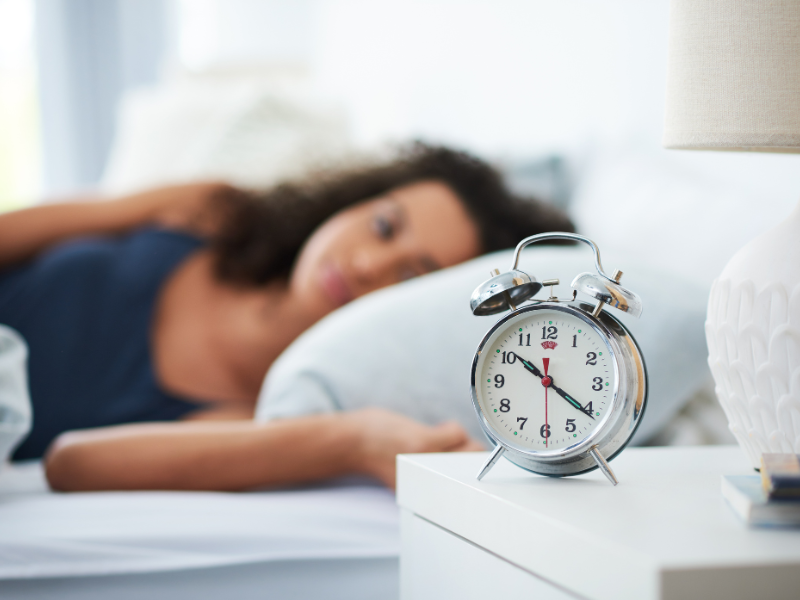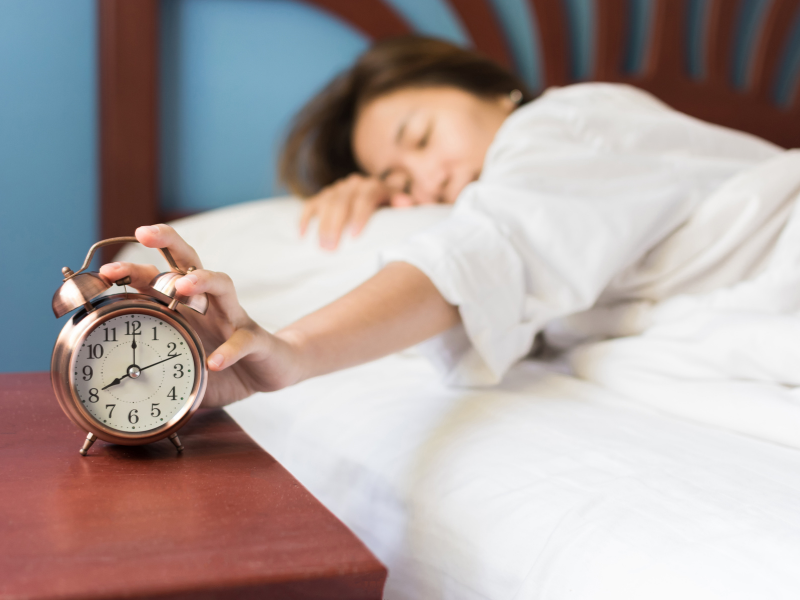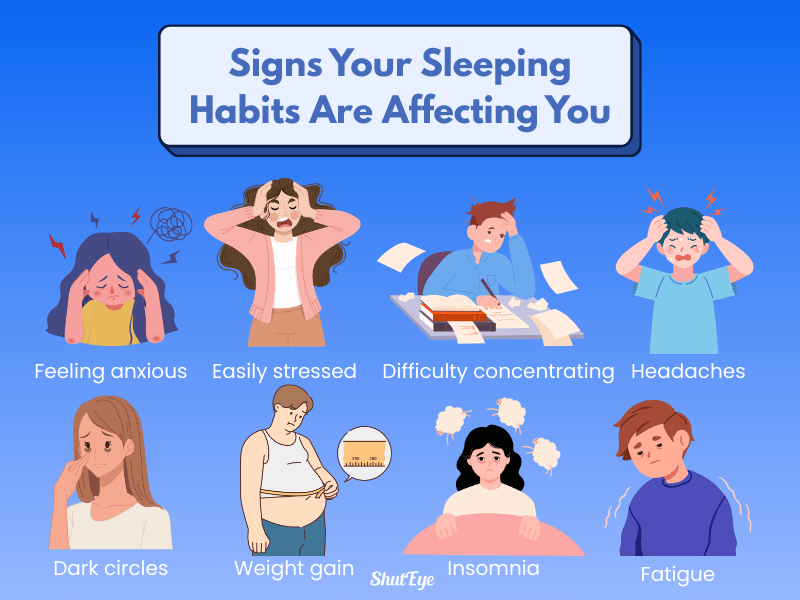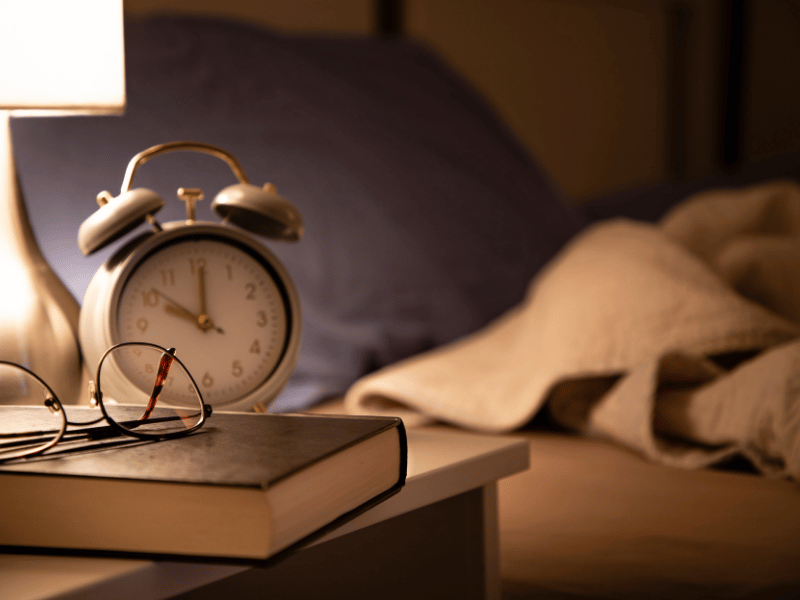


What is the best time to sleep and wake up? As we age, the amount of melatonin in our body will decrease. When this happens, we may find it harder to fall asleep and easier to wake up early.
The recommended sleep duration may vary according to age and other factors. However, that being said, we still need to ensure that we get a healthy amount of sleep each night for adequate functioning. Find out more about what time you should be sleeping and waking according to age, and ways to adjust your sleep schedule.
According to general guidelines and consensus from sleep experts, most healthy adults need between seven to nine hours of sleep each night. This is to prevent grogginess and sleep deprivation from occurring [1], [2].
However, this amount may change according to your lifestyle and age. It is not a hard and fast rule to adhere to.

Is there really a “best time” to sleep and wake up?
Well, not necessarily. The “best time” to go to bed and wake up is highly dependent on the individual’s internal clock and sleep pattern. Our sleep schedules can be affected by lifestyle factors such as work, school, or parenting along with having different sleep chronotypes [3].
In general, it is recommended that adults get between seven to nine hours of sleep each night and aim to fall asleep when it is still dark and get up early in the morning when there is sunlight [4].
According to science and various sleep medicine experts, the best time to wake up and sleep is a time when you can fall asleep at night, get adequate rest, maintain a consistent sleep schedule, and be exposed to morning sunlight.
Some people may sleep more and some may sleep less depending on age, whether they are healthy, recovering from sleep deprivation, or other factors. However, the main point is to ensure you get at least seven hours of sleep per night [3].
Not sure about when is the optimal time for you to sleep or wake? Find the best time now with our sleep calculator!


Constantly going to bed late and sleeping in can be bad for you and lead to various health problems. Being a night owl is associated with increased risks for depression and mood disorders, poorer cognitive functioning, excessive daytime sleepiness, and increased mortality rates [5].

The most obvious sign that this late sleeping habit is starting to affect you is when your sleep quality becomes impacted. Instead of feeling refreshed and well-rested, you may be feeling restless or on edge.
Some common signs and symptoms include [6]:
If you want to avoid sleeping late or avoid having an inconsistent sleep schedule then you need to focus on practicing good sleep hygiene. Doing so can help you to gradually adjust your sleep schedule and promote a consistent sleep routine.
Below are 5 sleep hygiene tips to adjust your sleep schedule.

Having a relaxing bedtime routine can help your body adjust to a consistent sleep schedule as it sends a signal that it is time to wind down and get ready for sleep. In turn, this will help to regulate your body’s circadian rhythms.
Creating a relaxing routine can include incorporating activities such as reading or listening to a bedtime story, listening to soothing music for sleep, taking a warm bath, or even doing some meditation exercises. You can even consider journaling or doing some light stretches, but be careful not to overstrain yourself.
Cultivating a good sleep environment can also be beneficial in helping you to sleep earlier and get a good night’s rest. It helps to calm your mind and get into the mood for resting.
Some of the things that you can do to cultivate this would be to ensure that you dim down the lights when it is time for bed, ensure that your room is quiet— use a white noise machine if necessary, and adjust your room temperature so that it is a cool temperature to sleep in.

One of the worst things that you can do at night is to use your electronic devices just before you are about to sleep. This is because our body produces a sleep hormone called melatonin. This hormone sends a signal to our brain, letting it know when it’s time for us to fall asleep.
Electronic devices emit blue light which interferes with the production of melatonin. A lesser amount of melatonin means that there’s a higher chance of us being more awake at night. Thus, if you are planning to head to bed early, ensure that you refrain from screen time at least 1 hour before.
Taking too many daytime naps can also be a cause of an inconsistent sleep schedule. Frequent napping can result in overtiredness as well as increased risk for health issues. Napping longer than 30 minutes each time and doing it too close to your bedtime can also make it harder for you to sleep at night.
If you do need to take a nap to recharge yourself, consider doing it before mid-afternoon and keep your naps to no longer than 20 to 30 minutes.

You should also avoid drinking caffeine or alcohol late at night if you would like to reset your biological clock and adjust to a healthier sleep schedule. Caffeine and alcohol are stimulants that may keep you up at night and cause frequent sleep disruptions.
If you already have trouble falling asleep, you don’t want to worsen the problem by consuming these. Should you really need or want to, it will be best to drink them before mid-afternoon and limit to 1 to 2 glasses a day.
Therefore, the best time to sleep and wake up is subjective to the individual based on the body’s internal clock and lifestyle factors. Rather than placing too much emphasis on the exact time to sleep or wake, it is more important to ensure that you are getting at least seven hours of sleep and not sleeping late frequently.
To ensure that you are getting the right amount of sleep that you need, try out the smart alarm clock feature on ShutEye® app. It helps to wake you up at your lightest sleep phase, reducing grogginess and making your mornings easier. Try it today for FREE!
Centre for Disease Control Prevention (2024) About Sleep [online]. Available at: https://www.cdc.gov/sleep/about/?CDC_AAref_Val=https://www.cdc.gov/sleep/about_sleep/how_much_sleep.html
Facer-Childs, E. R., Middleton, B., Skene, D. J., & Bagshaw, A. P. (2019). Resetting the late timing of ‘night owls’ has a positive impact on mental health and performance. Sleep Medicine, 60, 236-247 [online]. Available at: https://doi.org/10.1016/j.sleep.2019.05.001
Harvard Health Publishing (2023) How much sleep do you actually need? [online]. Available at: https://www.health.harvard.edu/blog/how-much-sleep-do-you-actually-need-202310302986
Johnson, J. (2020) What are the best times to sleep and wake up? [online]. Available at: https://www.medicalnewstoday.com/articles/best-time-to-sleep-and-wake-up
Kee, C. (2024) When is the best time to wake up? The ideal waking time, according to experts [online]. Available at: https://www.today.com/health/sleep/best-time-to-wake-up-rcna139056
Manipal Hospitals (2024) 7 Signs That Your Late Sleeping Habit Is Affecting Your Health [online]. Available at: https://www.manipalhospitals.com/blog/7-signs-that-your-late-sleeping-habit-is-affecting-your-health/